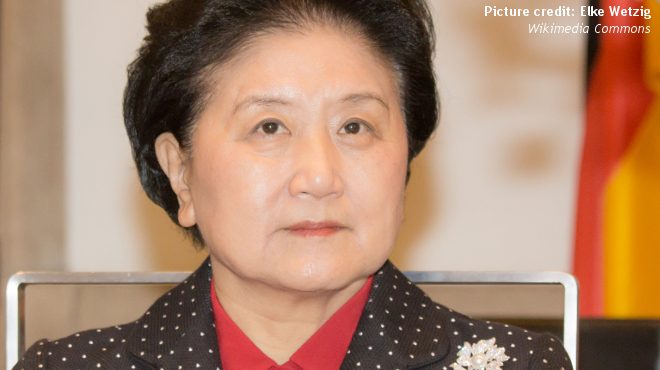Women and the 19th National Congress

Liu Yandong, Vice Premier of the PRC and a member of the Politburo of the Communist Party of China has bucked the trend.
On October 18, the Communist Party of China (CPC) will hold its National Congress of the Communist Party of China (NCCPC) a key event in terms of reallocating power. During this event, the Central Committee is expected to see 70% of its 376 members to leave in favor of newcomers.
Historically, female participation in the CPC reached its height in the period during the Cultural Revolution. After that, although each cabinet reshuffle has expanded the role of women within the CPC’s major institutions it is yet to reach those levels. Moreover, we are yet to see a woman occupy a seat at the Politburo Standing Committee.
Women and Socialism
China projects the image of an inclusive society. Accordingly, in 2015, President Xi reaffirmed the support of China to women’s rights. The commitment of the PRC was illustrated with a donation worth of US$ 10 million to UN Women.
The emphasis on providing further rights for women is solidified within the framework of a socialist society. By gathering all the available workforce, regardless of gender, economic output would be boosted.
Moreover, the narrative of communism is egalitarian in regards to gender equality. This is highlighted by Mao’s motto “women hold up half the sky” and his prohibition on foot binding for women.
The intuitions within the CPC have been increasingly inclusive of women. When compared with the 18th Party Congress, the 19th Party Congress increased female candidates from 23% to 24% of total participants. In total, 550 women will attend the 19th CPC Congress in comparison with the 18th Party Congress which had 521 female delegates.
Interestingly, gender balance is much more even for delegates whom identify with an ethnic minority. In this category, there are 113 women out of the 261 individuals.
Positions of Power
On the one hand, the PRC has made great achievement in women’s access to education and to positions within the CPC. However, on the other hand, the position of women downgraded significantly due to the emphasis on the traditional role that women should occupy within the social representation of Chinese society.
This is evident with the types of competences and the level of power allocated to women. Indeed, women are generally in charge of positions considered to be ‘female related’ such as family planning for the municipal level, and generally occupy positions within departments related to women and children.
So, although increasing presence of women in the NCCPC shows the successful inclusion of women in the PRC’s politics in numbers, differing cultural values limit the role of women in China’s political system.
Moreover, the types of institutions that women are included in tend to be those which are less politically influential. Indeed, the NCCPC itself is often referred to as a “rubber stamp” for the CPC. It holds power in name only whilst the real power is concentrated within the Politburo Standing Committee, made up of only men.
Cultural Realities
The situation regarding women rights within the CCP is a paradox. The PRC has hosted the UN Women Summit in September 2015, while the authorities have arrested women rights advocates on charges of disturbing public order and subversion of the state in 2015 and 2016.
The perception of women in the contemporary Chinese society is influenced by the remnant of culture and tradition from the imperial society. The Confucian approach still guides the behaviour of individuals within the public sphere. Additionally, women find it difficult to identify with feminism both due to limited exposure to it and its association with Western values.
Hence, whilst it is clear that the PRC has made great achievement in relation to women’s access to education and representation in politics, the traditional role that women should occupy within Chinese society still limits progress they can achieve.